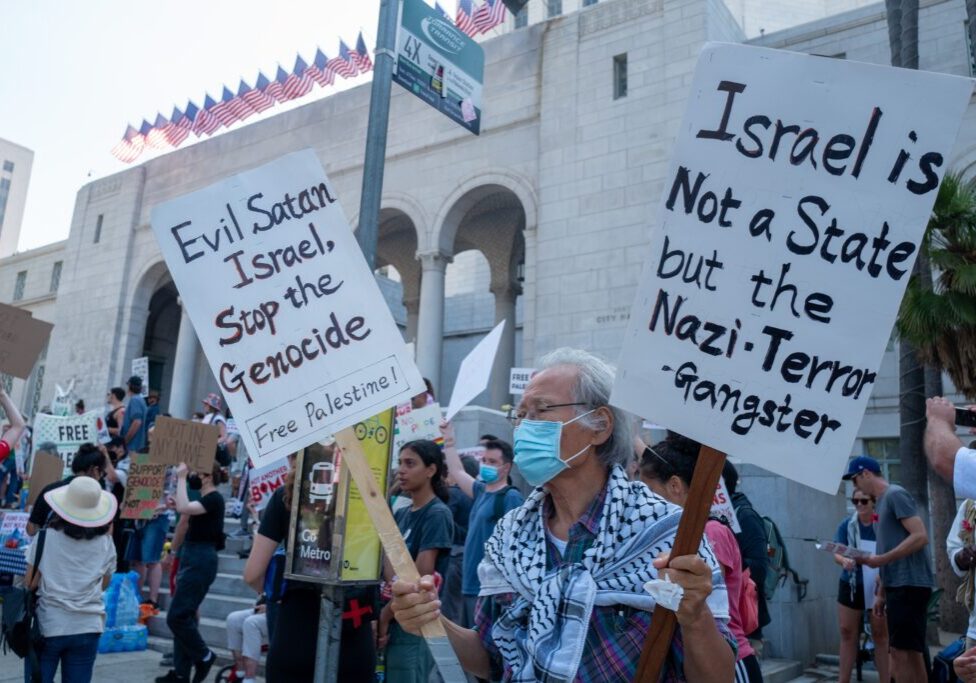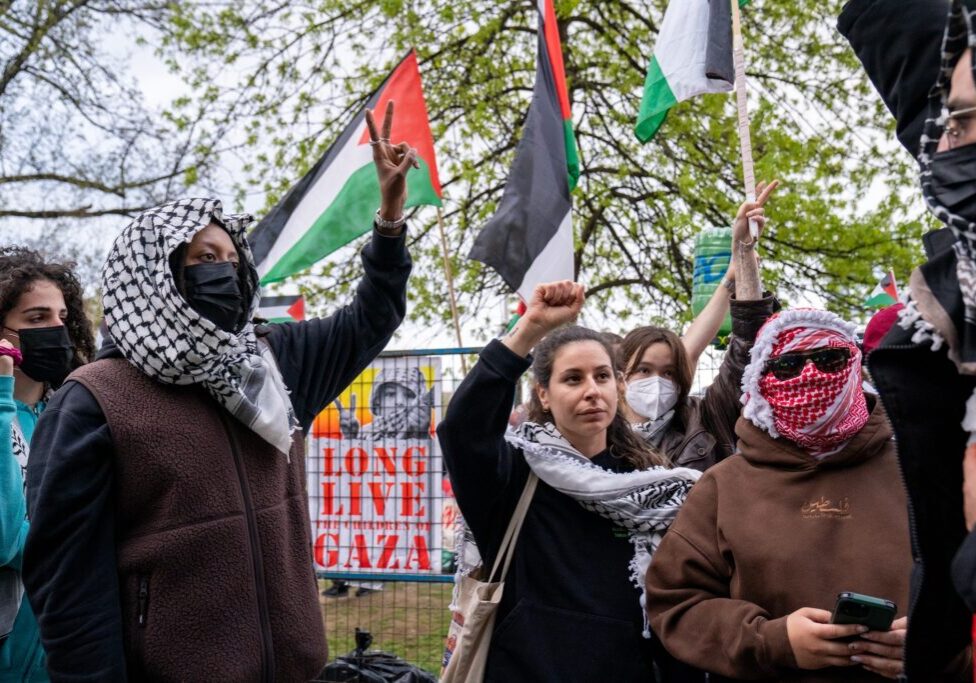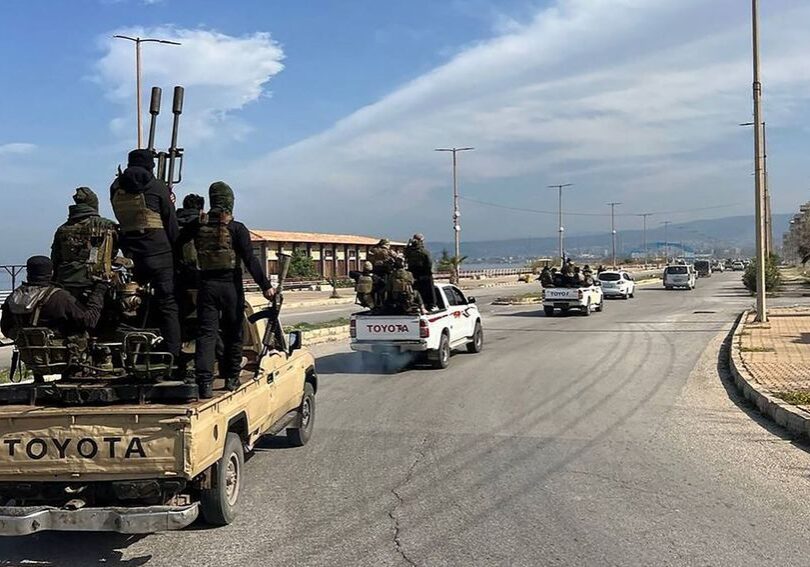Australia/Israel Review
The Docs of War
Aug 1, 2007 | Douglas Davis
Britain’s ongoing terror problem
By Douglas Davis
Gordon Brown had barely got his feet under the desk at 10 Downing Street when he was confronted with the first major crisis of his leadership. Two car bombs were discovered in central London, a third was rammed into the entrance of Glasgow airport. All were stuffed with propane gas canisters and nails.
The sole casualty was the driver of the Cherokee Jeep at Glasgow airport. He doused himself in petrol and set himself alight (the blaze was extinguished by fire fighters but, with 90% burns, he is not expected to survive). Seven doctors, including one in Australia, are being held as suspects in the conspiracy.
The “docs of war” were mercifully incompetent. And Gordon Brown was lucky. The explosives were defused and the crisis was averted. But he may not always be that lucky. No one is betting against further attacks by Islamic terrorists, perhaps more competent, getting through in the future.
Just before retiring as Director-General of Britain’s MI5 intelligence agency last April, Dame Eliza Manningham-Buller outlined her concerns for the future. Britain, she warned, is “a centre of intense activity” and there is a “very real possibility” that al-Qaeda and its franchises are planning mass murder, using chemical, biological, radioactive and even nuclear weapons.
The scale of the challenge is daunting. MI5 has had its budget doubled since the al-Qaeda attacks of 9/11, but it is currently keeping tabs on some 2,000 “priority one” terrorist suspects – six times more than in 2001. And that might be just the tip of the iceberg.
Security sources now estimate that 4,000 Islamic extremists in Britain have attended terrorist training camps in Afghanistan or in Taliban-controlled territory along the Pakistan border. Most are believed to have returned to their communities in Britain, where they are inducted into autonomous “sleeper cells”.
Documents discovered at abandoned al-Qaeda camps in Afghanistan revealed how recruits are trained in the use of small arms, as well as anti-armour and anti-aircraft weapons. Those selected for elite training are instructed in assassination skills or espionage techniques.
Britain’s prison service is also expressing alarm. There are now almost 100 terror suspects awaiting trial in about 40 separate cases in Britain, and security officials have little doubt that the number will rise dramatically. The Prison Officers’ Association estimates that the already-overcrowded facilities will have to expand drastically in order to accommodate the anticipated 1,000 additional terrorists who are expected to be convicted and imprisoned over the next five years.
Meanwhile, the prisons themselves are proving fertile breeding grounds for radicalising young Muslims. On any given Friday, more than 150 Muslims attend prayer services at London’s Wandsworth Prison, a ten-fold increase over the past two years – and more than all other faiths combined throughout the entire London prison system. Experts say much more needs to be done to control the influence of radical imams.
The top-security Belmarsh Prison, where a number of terror suspects are held, is said to have become dominated by extremists, and prison officers report that when they confront a Muslim prisoner they often find themselves surrounded by menacing groups of other Muslim inmates. The lunatics, it seems, are taking over the asylum.
However, the greatest cause for alarm is not only that the current threat might be greater than the ability of the security forces to contain, but that the figures might have been hopelessly under-estimated.
The first order of business for Gordon Brown is to tighten immigration checks in order to improve the capacity of the security services to cope with the threat. Incredibly, as things are, British officials – including intelligence and security agencies, and even the Immigration Service – do not know who is entering the country, where they are or how long they stay.
The authorities appear to know conclusively that 4,000 jihadis are in Britain at present, but they say it impossible to estimate how many more of the 70,000 terrorists trained in al-Qaeda camps might be in the country. And those who enter Britain on long-term work visas are subject to only the most cursory checks.
The Immigration Service relies heavily on the word of applicants to disclose criminal records, and British employers are meant to check prospective workers’ history with police in their home countries. This is honoured mostly in the breach.
An estimated 80,000 foreign doctors, for example, are working in the National Health Service, including 6,000 who trained in the Middle East. But identity checks carried out by the General Medical Council usually involve little more than checking that photographs on passports match their purported owners.
Notes one senior British politician, “You might think that a highly-educated person like a doctor isn’t going to be involved in radicalism, but… we have got to check every mother’s son or we will get caught with our pants down once again.”
Dame Stella Rimington, a former head of MI5, echoed this concern; “We have realised that the free movement of people is a great concept, but if you have people who would kill you, there have got to be a lot more checks.”
British officials are not alone in their concern about the relatively uncontrolled access to their country. Last month, Interpol Secretary-General Ronald K. Noble pointed an accusing finger at Britain for failing to check on people entering the country against a database of known terrorist suspects. Brown conceded that intelligence-sharing needed to be improved “as a matter of urgency.”
At the same time, America’s Homeland Security Secretary, Michael Chertoff, revealed that US security chiefs had singled out British-based Muslims as a particular threat to American security. The findings will fuel a proposal by Chertoff to tighten up entry requirements for visitors from the European Union generally.
But perhaps the greatest challenge facing Gordon Brown is the urgent need to restore the credibility and reputations of Britain’s intelligence services – MI5, MI6 and GCHQ, the euphemistically named Government Communication Headquarters – which combine to make up Britain’s front line of defence against terrorism.
Government sources now admit that the reputation of the entire security community was seriously compromised by the so-called “dodgy dossier” compiled by the former Blair Administration alleging that Iraq had weapons of mass destruction, and used to justify Britain’s decision to go to war.
“There is a belief that the man in the street believes that intelligence is simply used by the government as a tool to cover up its real intentions,” said one government source. “Even though MI5 had no input into the dossier, it was severely damaged by the fiasco.”
The twin focus of Brown’s strategy – in addition to tightening immigration controls and attempting to revive the fortunes of the intelligence services – will be to focus on toughening the powers of the police to detain terror suspects, possibly for 90 days, and to crack down on money laundering, which fuels the terror machine.
In 1996, the IMF estimated that between 2% and 5% of global GDP consisted of laundered money, mainly the recycled proceeds of drugs, crime and fraud. In today’s values, that would amount to a between US$900 billion to US$2.2 trillion.
Unravelling all that, while identifying and extracting the component that is used to fund terrorism, will take exceptional intelligence work. And it will not come cheap to Britain’s parsimonious new Prime Minister. But Brown insists that Britain will, for the first time, use classified intelligence where necessary to freeze assets and prevent cash from seeping through to terrorist targets.
Comparing the impact of forensic accounting in the 21st century to that of fingerprinting in the late 19th and DNA in the late 20th, he told the Chatham House think-tank in London, “Our aim is simple. Just as there should be no haven for terrorists, so there will be no hiding place for those who finance terrorism.”
There will also, he warned, be far closer scrutiny of charities and benefactors who might have been exploited by terrorists, while bureaux de change, cheque cashers and money remitters will be closely monitored because they are “known to be open to abuse as a source of terrorist finance.”
In addition to a tough law-enforcement approach, Brown also has a clutch of soft-power options up his sleeve. Among them is a cultural campaign, to be mounted on an “extraordinary scale”, that will aim to isolate the radicals and win the hearts and minds of the mainstream Islamic moderates. The strategy will involve the media, cultural organisations, the arts, universities, the churches, trades unions and sports clubs.
Some of the “softer” approaches were evident immediately after the abortive doctors’ plot. In an attempt to answer charges that the entire Muslim community was being stigmatised by the phrase “Islamic terror”, Brown ordered that the words simply disappear from the public discourse. “Islam”, “Islamic” and “Muslim” were replaced by “communities”. “Terrorism” was replaced by “criminal conspiracy”. And gone forever was the phrase “war on terrorism”.
The problem is that political correctness might soothe the sensibilities of the non-radical Muslim community (so, too, might an about-turn on foreign policy), but it is not a strategy for success. Mainstream Muslims are unlikely to feel a greater sense of allegiance to the state because there is a change in vocabulary; nor will Islamofascists hate Britain less if Brown decrees that his officials avoid all mention of the theology that inflames them, or the nature of the deeds they perpetrate.
Winning the war – and it is a war – against the jihadists begins with moral clarity. It was left to Hassan Butt, a former leading jihadist and spokesman for the Islamic extremist al-Muhajiroun movement until last year, to make the point and inject a note of realism.
Butt unequivocally blames Islamic extremism for the recent abortive attacks and pinpoints “Islamic theology” as “the real engine of our violence”. British jihadists, he says simply, are “mindless killers” who have, “declared war upon the whole world”.
“I disagree with those who say the pressing problem is simply how we deal with an aberrant, extreme minority who have unleashed a reign of terror on Britain,” says Butt. “Rather, I believe the heart of the matter is Islam itself and how its teachings are interpreted. If we isolate the problem to that of the extreme fringe, then we are merely skimming the surface.”
Nor would it have pleased the pacifist-leaning Gordon Brown, who has been described as “an instinctive friend of Israel”, to hear that he is in a state of denial. According to Butt, people like Brown hope the problem of Islamic extremism will disappear if they repeat the mantra that Islam is a religion of peace and refuse to confront the “difficult and often complex truth that Islam can be interpreted as condoning violence against the unbeliever.”
Wars, he points out, cannot be won through denial, the psychological defence system by which people protect themselves from individuals or groups which are perceived to threaten or discomfort them. “Yet, in ways large and small, Western leaders and institutions deliberately avert their gaze from the reality of the Islamist threat.”
Gordon Brown is going through a period of not-so-subtle disengagement from the largely unqualified support for Washington that had been the default position of Tony Blair. Bending the knee to the Muslim community might be part of that process.
Shortly before his transition to prime minister, Brown spoke sympathetically of “the trials and tribulations of the Jewish people”, “the enormous suffering and loss during the Holocaust”, and “the extraordinary struggle… to create this magnificent homeland”. In his quest to win Muslim hearts and minds, it will be instructive to note whether his tone and vocabulary – when it comes to Israel and Jews – remain constant.
![]()
Tags: Islamic Extremism, United Kingdom






